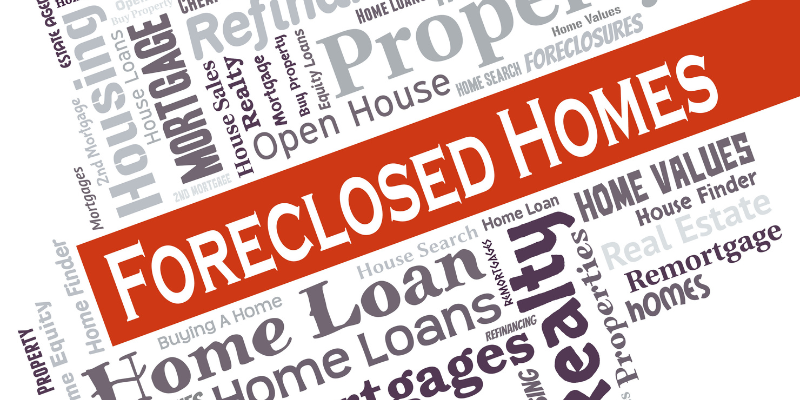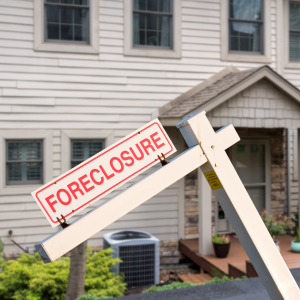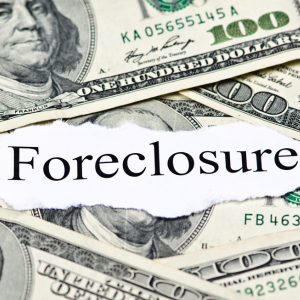
Understanding Foreclosure Processes in Virginia
Understanding how foreclosure works in Virginia is key if you’re planning to sell a home under these conditions. Since Virginia primarily follows a non-judicial foreclosure process, things tend to move quickly, often without needing court approval. This approach is guided by the deed of trust, which gives lenders the authority to start foreclosure if a borrower stops making payments.
Before the trustee sale, the seller should know how long it takes from the notice of default and plan to sell to the actual sale. Knowing what to expect and when to do what to get the house ready to sell can help you control your expectations.
Hiring a real estate professional in Virginia who knows about foreclosure sales can help you set the right price for the home and get it in front of the right people. Knowing how the process works will help make sure that the sale of your home goes smoothly and legally.
Assessing the Value of Your House in Foreclosure
Getting the value right is essential when selling a foreclosure home in Virginia. Start by doing a detailed comparative market analysis (CMA) to see what similar homes in your neighborhood have recently sold for. Focus on differences in condition, square footage, and location, as these all affect pricing.
If the home needs repairs or has unique features, factor those in. It may also be wise to hire a professional appraiser who can offer a neutral and informed perspective on the property’s worth based on Virginia’s foreclosure market.
Jobs and housing demand are two economic factors that you should keep an eye on because they affect how buyers set prices. Also, be sure you know all the laws in your state about estate sales so you can follow them to the letter. Your home is more likely to stand out and get good offers if you have a clear, well-researched valuation.
Legal Considerations for Selling a Foreclosed Property
Selling a foreclosed home in Virginia comes with its own set of legal responsibilities. You’ll need to follow state-mandated steps like notifying all lienholders and ensuring that the sale meets specific legal guidelines. Virginia requires sellers to give full disclosure about the home’s condition, including existing liens or title complications.
Getting through these legal requirements can be a lot easier if you work with an experienced real estate lawyer. When you sell or market your house, federal laws like the Fair Debt Collection Practices Act (FDCPA) and the Real Estate Settlement Procedures Act (RESPA) may also come into play.
By staying informed and working with professionals familiar with foreclosure transactions in Virginia, you can avoid costly legal missteps. This preparation helps ensure that the sale not only complies with the law but also closes smoothly and without unnecessary delays.
How to Prepare Your Virginia Home for Sale During Foreclosure

Prepping your home for sale during foreclosure in Virginia is all about making a solid first impression. Begin with any basic repairs or maintenance issues that could hurt the property’s appeal. Even simple fixes can go a long way toward making the home more marketable.
It’s just as important to clean deeply. A home that is clean and free of mess makes it easier for potential buyers to picture themselves living there. Fresh paint in neutral colors and clean up the grounds can make a big difference in how appealing your home looks from the street.
Make sure the rooms inside feel bright and warm. Even moving furniture around to make the room move better can make a difference. A Virginia real estate professional who has experience with foreclosures can help you plan your strategy, including how to set the right price and follow the law. Even though the house is in foreclosure, these extra steps make it easier to get serious buyers.
Steps to List a Foreclosed House on the Market
If you’re listing a foreclosed home in Virginia, planning each step carefully can help you reach the right buyers faster. First, conduct a thorough market analysis to determine a competitive and realistic asking price. Foreclosure buyers are often value-driven, so pricing accurately is critical.
Address any glaring issues that may turn off buyers—cosmetic updates or safety repairs can make a noticeable impact. A skilled realtor who understands foreclosure listings will know how to market your property, taking into account the urgency and complexity involved.
To show off the house online, use professional photos and thorough listing descriptions. Use MLS platforms and targeted web listings to get the most attention. You might also want to think about open houses and video tours, especially if the house is empty. More people who see your home are more likely to be serious buyers who are ready to act quickly.
Marketing Strategies for Selling a Foreclosed Property Quickly
To sell a foreclosed home fast in Virginia, strong marketing makes all the difference. First, make the outside of your home look nice by cutting the grass, cleaning up the yard, and adding cheap touches like flowers or new mulch. Next, make sure your website has high-quality pictures and virtual tours that show off the best parts of the property.
A well-crafted listing should be pushed out across top platforms to get eyes on the home fast. Work with a realtor who knows how to market foreclosed homes specifically, since they can help you tailor messaging to the right audience.
Highlight strengths like recent updates, location advantages, or investment potential. Competitive pricing, based on real-time market data, will also draw more serious buyers. Consider using social media ads and local promotions to reach investors or first-time buyers who may be open to purchasing a foreclosed property.
Navigating Financial Challenges When Selling a Home in Foreclosure
Financial problems are common when trying to sell a Virginia foreclosed home, but taking the right steps can help reduce the stress. Check your current financial situation and see what choices you have, such as short sales or negotiating with your loan.
A real estate professional with experience in foreclosures can help you set the price of the home so that it will attract buyers, especially investors or cash buyers who are interested in homes that are in bad shape. Getting an expert opinion is a smart move because it helps you stand by your price and know what the item is really worth.
Understanding the legal timeline, such as potential redemption periods, will also help you plan effectively. It’s important to get the word out about your home through listing sites, open houses, and investor networks. Work with your lender to lower or settle your leftover debts if you can. This can help the closing go more smoothly and give you more money.
Common Mistakes to Avoid When Selling a Home Under Foreclosure
When selling a foreclosure home in Virginia, avoiding common missteps can make a huge difference in the outcome. One frequent error is neglecting necessary repairs. Even modest improvements can boost buyer interest and result in better offers. Another major issue is overpricing the home—while it may seem tempting, it often deters serious buyers and keeps the property on the market longer.
It’s also important to be honest. Not telling a buyer about known problems can get you in trouble with the law and make them hesitant to buy. Make sure the information in your post is correct, and add good photos to make it look better online. When you give a bad show, whether it’s online or in person, you often miss out on chances.
Avoiding these mistakes requires attention to detail and guidance from a knowledgeable realtor who understands Virginia’s foreclosure market. Taking these extra steps can improve your odds of a successful, timely sale while reducing complications along the way.
How to Negotiate Offers on a Virginia House in Foreclosure
To make an offer on a Virginia foreclosure home, you need a plan and to know a lot about the local market. Find out about recently sold homes in the area to help you set a price that will get you offers but also allow for negotiations. When you get an offer, be sure to point out the property’s best features and be honest about any problems that come with the fact that it is in foreclosure.
Stay open to counteroffers, but know your bottom line. Offering small perks—like covering some closing costs or including a home warranty—can help close the deal without slashing your asking price.
Having experience on your side can make all the difference—especially if you’re selling a home during a divorce or foreclosure in Virginia. A realtor who understands the ins and outs of foreclosure sales can offer key insights into lender requirements, buyer behavior, and pricing strategies. They’ll also be familiar with how Virginia law affects both foreclosure and divorce-related transactions, helping you handle offers properly and avoid delays. Whether you’re dealing with a distressed sale or a complex divorce situation, the right guidance can keep your sale moving forward with confidence.
Closing the Sale: What Sellers Need to Know About Finalizing Deals
Finalizing the sale of a Virginia foreclosure home requires careful planning of a few key steps. Prior to close, sellers must make sure that all paperwork, including title records and disclosure forms, is complete and correct. A comparative market study can help you find a price that will attract qualified buyers.
Negotiations may require flexibility, especially if the buyer requests terms like closing cost coverage. Emphasizing the home’s strong points during negotiations can tip the scale in your favor.
Transfer taxes, settlement fees, and title insurance are common closing costs in Virginia, so it’s important to have enough money saved. Understanding the costs involved in selling a home helps sellers plan ahead and avoid surprises. Work with an experienced real estate professional to handle buyer interactions and deadlines effectively. Even with all the extra steps that come with foreclosure, sellers can make the sale go smoothly if they stay prepared and up to date.
Tax Implications of Selling a House in Foreclosure in Virginia
Selling a foreclosed home in Virginia has tax consequences that shouldn’t be overlooked. If your lender forgives any portion of the debt, that amount might be considered taxable income by the IRS under the “cancellation of debt” rule. This can result in an unexpected tax bill unless certain exceptions apply, especially if the home was your primary residence.
You may have to pay capital gains taxes if you sell your home for more than what you owe. This depends on how long you owned the property and other factors. Talk to an accountant or tax preparer to find out which tax rules apply to you and how to get ready for them.
Detailed record-keeping is critical—keep documentation of the sale, any debt forgiveness, and all communications with your lender. Understanding these financial details upfront can help you avoid surprises and protect your financial stability after the transaction closes.
Utilizing Short Sales as an Alternative to Traditional Foreclosure Sales

Opting for a short sale in Virginia can be a smart alternative to going through the full foreclosure process. A short sale allows you to sell the home for less than what’s owed, but with the lender’s approval. This can minimize damage to your credit and shorten the amount of time the property remains in limbo.
People who want to save money often look at short sales, especially when the real estate market is bad. To make this work, you need to work with a real estate professional who knows how short sales work in Virginia. They will help you get all the information you need, talk to your lender, and properly list the property.
Short sales involve more moving parts than a traditional home sale, so staying patient and keeping communication clear is key. When handled correctly, a short sale can streamline the legal process, save time, and offer a more dignified exit from a difficult financial situation. O'Neill Home Buyers buys houses for cash—contact us today to explore your options.
The Role of Auctions in Selling Homes Undergoing Foreclosure
When it comes to Virginia, sales are a quick and easy way to sell foreclosed homes. People who are ready to bid at these events are likely to buy the property, which can help bring the price closer to the market rate without taking too long to sell. Auctions cut down on the time a house sits on the market without being sold, which saves the seller money on costs like taxes and upkeep.
The process is often streamlined, with clearly defined timelines and bidding rules. While it may feel fast-paced, auctions offer a level of transparency that appeals to both buyers and sellers. If you’re considering this route, it’s important to understand the local auction procedures and any legal obligations tied to trustee sales in Virginia.
Before the auction, sellers should also make sure that the property is well advertised, with clear information and pictures to get people interested. In today’s fast-paced real estate market, auctions can be a great way to quickly close a foreclosure sale.
How Home Inspections Impact the Sale of a Virginian House in Distress

Home inspections play a major role in how buyers evaluate distressed homes in Virginia. For sellers, ordering a professional inspection upfront can help identify hidden issues like structural damage or plumbing problems, which are common in foreclosed properties. By addressing these findings early—or at least disclosing them—you build trust with potential buyers and minimize surprises during negotiations.
A thorough inspection report also gives you a better idea of the property’s state, which helps you set the right price for the home and point out any recent improvements or stable areas. When buyers see that information is clear, they feel more confidence, especially when it comes to homes that already have a bad reputation for being foreclosed on.
Sell your house fast in Virginia Beach by staying ahead of the game—Virginia real estate deals often depend on full disclosure, so getting a pre-listing inspection can help avoid last-minute surprises. Taking this proactive step not only builds buyer confidence but also makes your home stand out in a market where buyers tend to be extra cautious.
Understanding Lender Requirements and Payoff Procedures
If you want to sell a Virginia foreclosure, you need to know what your lender wants during the payoff process. Ask for a payoff statement first. This will show you the full amount you owe, including any late fees, interest, and other fees. This paper is needed for the closing and makes sure that the title can be transferred without any problems.
Many lenders may also have rules that must be followed before they will accept a sale, especially if it is a short sale. Talking to the lender or their lawyers directly is important to avoid delays.
Additionally, it is advisable to get rid of any junior liens that might get in the way of the deal. Short deadlines apply when selling a foreclosure, so it’s important to act quickly and follow all state laws. If you’re buying or selling a foreclosure, a real estate professional who has experience with these lender steps can help you avoid making mistakes and make sure everyone is on the same page for a quick and smooth close.
Protecting Your Credit Score While Navigating Through Foreclosure
In Virginia, selling a foreclosed home doesn’t have to hurt your credit, but you do need to plan carefully. First, keep the lines of communication open with your lender to look into other options, such as loan changes or short sales, that might have less of an effect on your credit report.
Make timely payments on remaining debts and stay current on utility bills—this helps maintain a pattern of financial responsibility. Consulting with a credit counselor or financial advisor can give you insights into preserving your creditworthiness during and after the process.
Keep copies of all documents, correspondence, and payment confirmations to protect yourself from reporting errors. Your credit will likely take a hit, but taking proactive steps now can prevent long-term damage. With the right guidance and planning, it’s possible to exit foreclosure while keeping future borrowing opportunities within reach.
Case Studies: Successful Strategies for Selling Homes in Virginia’s Housing Market
Several successful sales in Virginia’s foreclosure market have followed a few key strategies. One common approach is working with realtors who specialize in distressed properties. Their insight into pricing, legal steps, and buyer trends makes a big difference. In one case, staging a modestly priced foreclosure with simple décor helped it sell within two weeks.
Another example involved a seller who leaned into digital marketing, using targeted social media ads and virtual tours to draw in buyers from out of state. This broadened the pool of interest and helped the home sell above asking price.
Hosting well-timed open houses and keeping communication lines open also contributed to quicker closings. These real-world cases show that preparation, strong presentation, and local market knowledge can turn even challenging properties into profitable sales.
Future Trends: the Impact of Economic Conditions on Virginian Real Estate and Foreclosures
Economic shifts play a huge role in Virginia’s real estate market, particularly in the foreclosure sector. As interest rates fluctuate and inflation pressures continue, buyers may find it harder to secure financing, which slows down demand for homes—especially distressed ones.
Local job markets also affect how quickly foreclosed homes sell. In regions with strong employment growth, foreclosure properties tend to attract more attention, while areas with rising unemployment may see increased foreclosure rates and slower sales.
Sellers must keep a close watch on these trends. Understanding how national and local economic changes impact buying behavior can help you time your listing better and adjust pricing strategies as needed. Those who stay informed and adaptable will have the best chance at navigating a shifting market and successfully selling foreclosure homes, even in uncertain conditions.
Can I Sell My House While I’m in Foreclosure?
Certainly! Here’s a keyword-dense paragraph for your article: If you’re facing foreclosure in Virginia, you might wonder, “Can I sell my house while I’m in foreclosure?” The answer is yes, and it can be a strategic move to avoid the negative impacts of a foreclosure on your credit report. Selling a home during foreclosure requires swift action and effective strategies to ensure the process goes smoothly.
First, it’s crucial to understand the timeline of foreclosure proceedings in Virginia. This knowledge will help you navigate deadlines and negotiate with potential buyers.
Working with a real estate professional experienced in foreclosure sales can be invaluable; they can guide you through pricing your home competitively and marketing it effectively to attract buyers quickly. Additionally, consider consulting with a real estate attorney who understands Virginia’s specific foreclosure laws to ensure all legal aspects are handled correctly.
By proactively managing the sale of your foreclosed property, you may not only prevent foreclosure but also potentially preserve some equity in your home.
What Are the Foreclosure Rules in Virginia?
In Virginia, understanding the foreclosure rules is essential for effectively selling a foreclosure home. The state primarily follows a non-judicial foreclosure process, allowing lenders to foreclose on a property without court intervention, provided there is a power of sale clause in the deed of trust.
This process typically makes foreclosures quicker and less costly for sellers. However, it is crucial for homeowners to be aware of their rights, such as receiving proper notice and the opportunity to reinstate their loan prior to sale.
Virginia law requires that a Notice of Sale be sent at least 14 days before the auction date and that this notice also be published in a local newspaper. Additionally, deficiency judgments are permitted in Virginia, meaning sellers could still owe money if the sale does not cover the outstanding mortgage balance.
Therefore, sellers should consider these legal aspects when preparing their foreclosure home for sale to ensure compliance with all relevant regulations and optimize their selling strategy in Virginia’s real estate market.
How Much Does a House Sell for in Foreclosure?
When determining how much a house sells for in foreclosure in Virginia, several key factors come into play. The foreclosure process often results in properties being sold at a significant discount compared to market value, making them attractive to investors and buyers looking for bargains.
In Virginia, the price of a foreclosed home can vary widely based on location, condition, and the current real estate market trends. Typically, foreclosures sell for 15-30% below the market value of similar homes that are not in distress.
Factors like neighborhood desirability, proximity to amenities, and overall economic conditions also influence pricing. Understanding these variables is crucial for sellers aiming to maximize their return and for buyers seeking to make informed purchasing decisions during a foreclosure auction or sale.
Working with professionals who understand distressed properties can make a big difference when selling a home in foreclosure. Their experience helps you set a competitive price and manage the legal and financial hurdles that come with the process in Virginia. If you’re looking for a quicker option, we buy houses for cash in Hampton—no repairs or agent fees needed.
What Is the 120 Day Rule for Foreclosure?
When selling a foreclosure home in Virginia, understanding the 120-day rule for foreclosure can be crucial for a successful transaction. The 120-day rule is part of federal regulations that mandate lenders to wait at least 120 days from the date of the borrower’s default before initiating foreclosure proceedings.
This policy provides homeowners with an opportunity to explore loss mitigation options such as loan modifications, repayment plans, or short sales, thereby potentially avoiding foreclosure altogether. For sellers and real estate professionals dealing with foreclosed properties in Virginia, it’s important to leverage this window to negotiate with lenders and market the property effectively.
Familiarity with this rule helps ensure compliance with legal requirements and enhances communication between all parties involved in the sale process. By utilizing strategic pricing, staging, and marketing during this period, sellers can increase their chances of closing a deal before formal foreclosure proceedings commence, thus making the most out of the available timeframe provided by this rule.
Helpful Virginia Blog Articles
- Selling A Fixer-upper Home In Virginia Without Renovations
- Guide To Selling Your Virginia Home Without A Realtor
- Navigating The Sale Of Your Virginia Home Amid Divorce
- Effective Strategies For Selling A Foreclosure Home In Virginia
- Expert Tips For Navigating The Sale Of A Probate House In Virginia
- Understanding Squatters’ Rights In Virginia
- The Costs Involved In Selling A Home In Virginia
- Selling An Investment Property In Virginia
- Closing On A Home After An Appraisal In Virginia
- Steps To Remove Your Name From A Virginia Mortgage
- How Long Can Seller Stay in House After Closing in Virginia?
- Can You Sell A House With A Lien in Virginia

| PRE-FORECLOSURE | FORECLOSED UPON | HOME LOAN | MORTGAGED | MORTGAGE LOAN | MORTGAGE LENDERS |
| MORTGAGE DEBTS | CREDITORS | BANK | ATTORNEYS | LAWYERS | BANKRUPTCY |
| PRINCIPAL | LEGAL AID | DEFAULTED | REFINANCING | INFORMATION | ENTER A JUDGMENT |
| MORTGAGE SERVICER | UNLAWFUL DETAINER | EVICTION | CREDIT HISTORY | ASSET | LITIGATING |
| LAWSUIT | GRACE PERIOD | DEED IN LIEU | DEED IN LIEU OF FORECLOSURE | RIGHT OF REDEMPTION | LATE FEE |
| LEGAL ADVICE | CREDIT CARDS | CONTRACT | CHAPTER 7 | CHAPTER 7 BANKRUPTCY | |
| CHAPTER 13 | CHAPTER 13 BANKRUPTCY | U.S. | PHONE | REPOSSESS | REAL ESTATE OWNED |
| NOLO | LIABILITY | FORBEARANCE | FINANCES | COMPANY | |
| AFFIDAVIT | BEFORE THE FORECLOSURE | LIEU OF FORECLOSURE | A FORECLOSURE SALE | AFTER THE FORECLOSURE | CHAPTER 13 BANKRUPTCY |
| FILING FOR BANKRUPTCY | THE LENDER CAN | CHAPTER 7 BANKRUPTCY | ON YOUR MORTGAGE | OF THE LOAN | STOP A FORECLOSURE |
| A DEFICIENCY JUDGMENT | TO AVOID FORECLOSURE | AT A FORECLOSURE | DEED IN LIEU | STOP THE FORECLOSURE | ON THE MORTGAGE |
| SELL YOUR HOUSE | BEHIND ON YOUR MORTGAGE | DEED IN LIEU OF | AFTER THE FORECLOSURE SALE | IN LIEU OF FORECLOSURE | THE LENDER AGREES TO |
| A DEED IN LIEU | CAN SELL YOUR HOUSE | TO STOP THE FORECLOSURE |
